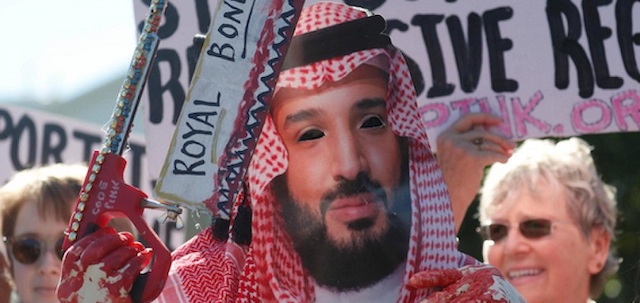As the horrible assassination of the prominent Saudi Arabian journalist Jamal Khashoggi and the international efforts to bring to justice those behind the murder drive to the margins the Saudi media focus on the Crown Prince Prince Mohammed bin Salman’s reforms to reduce the heavy social pressure originating from the Wahhabi headline clergy who come against any social freedoms, Riyadh recently in a new effort to mend the largely damaged image of bin Salman and his reforms the king in a decree ordered halts to underage executions and lashing the criminals.
image1
According to the new decree, the children indicted for crimes will be handed 10 years in rehabilitation centers. This age group will no longer be given death sentences. Awad Al-Awad, the head of the Saudi Human Rights Commission, commented on the new law saying that with the new decree "the kingdom can have a more modern criminal law."
"Lawless" decrees
Saudi Arabia and its rulers for years have been trying to paint themselves favoring political reforms based on reducing the power monopoly and respecting human rights. The turning point was the formation of Consultative Assembly, a body akin to parliament, in 1992 by King Fahad. Also, in 2005 King Abdullah authorized municipal elections as the core of democracy.
Such measures essentially can introduce broader reforms in governance in the history of Al Saud rule over the Arabian Peninsula even compared to the reforms by Prince Mohammed. But they at the same time are way behind the home social dynamism in the transforming Saudi community. Even worse, these changes could not go beyond being superficial and symbolic or at least paint themselves as ways toward real reforms requested by the Saudi society, especially the younger generations.
Years after the foundation of the Consultative Assembly, all of its members without exception are picked every four years by the king. As its title makes clear, the Consultative Assembly has a role of consultation. It gives its ideas on important country issues to the king without having the power to enact laws or press the ruling family to follow a set policy.
Lack of law-making body powered by public participation, sharing of power with diverse views and inclusion of minorities along with a systematic boost of suppression apparatus that strikes any voices demanding such reforms at home and even abroad- murdering Khashoggi was a clear example of the job of the apparatus- push to the home and foreign public opinion to label them expedient and even anti-democratic.
In fact, showing an interest in reforms and gradual movement towards a constitutional monarchy serve as an instrument to check the revisionist and pro-transformation movements inside and outside the country, inject relative calm to the transforming society, and appease the Western allies who are pressured by rights groups to raise reforms with the Arab allies.
This reality about the nature of the reforms by the ruling Al Saudi family triggers an unconfident view of the recent reformatory moves by the Saudi leaders. From another aspect, the absence of an independent supervisory authority watching the implementation of the law practically bring under question the government’s honesty in following the human rights-related decrees and laws.
The Saudi media did not make it clear that when the new decree is expected to take effect and if it will cover the convicts now awaiting the gallows. The AFP reported that this decree would not include the sharia laws and those sentenced to death based on the sharia orders are excluded from this decree coverage.
Systematic massacring of Yemeni children and Shiite citizens
Certainly, the new decree preventing the execution of the teenagers and children should be deemed as an effort to overshadow the black case of execution of the West-backed kingdom’s own Shiite teenagers and also massacring the Yemeni children by non-stop bombardment. These two cases have been magnets to anti-Saudi criticism of the international rights organizations. Prominent teenage convicts are Ali Mohammad Baqir al-Nimr, Abdullah Hassan al-Dhaher, and Salman bin Amin bin Salman al-Quraish who have been in prison since January 2015 and are now waiting for their verdicts implementation.
The European Center for Constitutional and Human Rights says that Riyadh plans to execute five teenagers, Ahmad Abdulwahid al-Faraj, Ali Mohammad al-Bati, Mohammad Hussein al-Nimr, Ali Hassan al-Faraj, and Mohammad Isam al-Faraj, whose were arrested under charges of taking part in 2011 anti-government protests and also joining funerals held for the demonstrators killed by the security forces in the east of the country. All of them were sentenced to death when they were below 18.
The Saudi efforts to pose as a country complying with the international protocols of children’s rights come while over the past five years the Saudi military has been systematically targeting via airstrikes the Yemeni children along with their families at their homes, schools, and elsewhere. Saudi-led Arab coalition since March 2015, when it launched a bloody aggression against Yemen in, has killed tens of thousands of Yemeni people, many of them children. The brutal war also has left many more wounded so far, including thousands of children.
SOURCE: Alwaght











